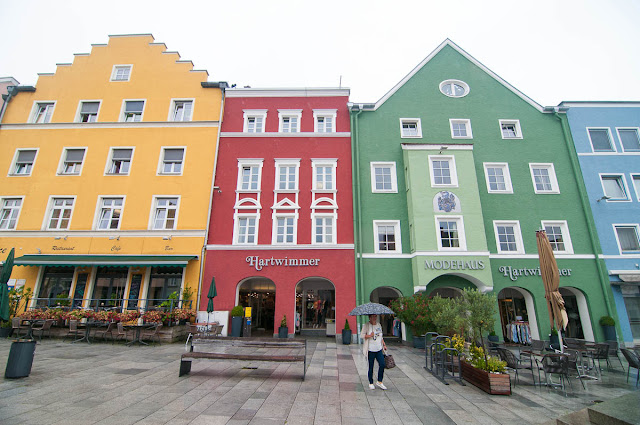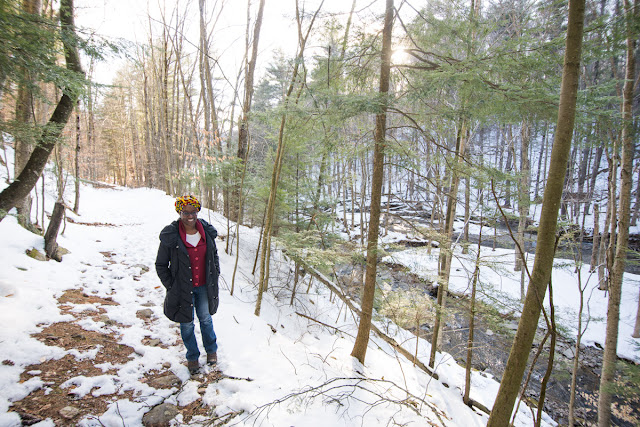germany: passau and the innkeeper's daughter

somewhere in the south of germany, there is a point where the mighty danube river is joined by the inn from the north and the liz from the south. a river confluence is usually a natural settling point, and sure enough 'dreiflüssestadt' came to be: the name means the city of three rivers. sadly, they didnt keep this rather picturesque name and instead came to call the place 'passau.'
passau is one of the older towns in germany - it was originally settled by the gallic boii people, ancient tribes around the 2nd century b.c. until eventually the romans took over and founded a colony. in 739 b.c.e. an english monk established a monastery here.
eventually, after many buildings occupying the site, this church was built in 1688. it has several bells, but the most impressive is 7.5 tonnes.
passaus ancient roots show when you start to wander the streets - the tiny streets meander and not many are not wide enough to fit a vehicle. you can still feel the roman influence from the cobblestone streets.
because of its choice location on the confluence, there are plenty of riverboat tours, including this especially classy one filled with swarovski crystals. i don't know what those are, but our wives were very excited by this, and posed next to the crystal filled staircase, crystal chandelier, and crystal decorated boat with just as much enthusiasm as anto and i posed next to a brand new ferrari that drove into passau as were were sitting there.
passau also has a dark side to its past - during world war 2 there were 3 concentration camps situated here, to say nothing of hosting hitler for a couple of years.
one of passau's daughters was the poetess emerenz meier. actually she was born nearby, but her first published work was in a passau newspaper. there is a bust of her overlooking the river. apparently she was from the working class and later emigrated to chicago.

i leave you with this rather memorable poem that she penned that rather brings many artistic accomplishments into perspective:
If Goethe had had to prepare supper, salt the dumplings;
If Schiller had had to wash the dishes;
If Heine had had to mend what he had torn,
to clean the rooms, kill the bugs-
Oh, the menfolk, none of them would have become great poets.
passau is one of the older towns in germany - it was originally settled by the gallic boii people, ancient tribes around the 2nd century b.c. until eventually the romans took over and founded a colony. in 739 b.c.e. an english monk established a monastery here.
eventually, after many buildings occupying the site, this church was built in 1688. it has several bells, but the most impressive is 7.5 tonnes.
passaus ancient roots show when you start to wander the streets - the tiny streets meander and not many are not wide enough to fit a vehicle. you can still feel the roman influence from the cobblestone streets.
because of its choice location on the confluence, there are plenty of riverboat tours, including this especially classy one filled with swarovski crystals. i don't know what those are, but our wives were very excited by this, and posed next to the crystal filled staircase, crystal chandelier, and crystal decorated boat with just as much enthusiasm as anto and i posed next to a brand new ferrari that drove into passau as were were sitting there.
passau also has a dark side to its past - during world war 2 there were 3 concentration camps situated here, to say nothing of hosting hitler for a couple of years.
one of passau's daughters was the poetess emerenz meier. actually she was born nearby, but her first published work was in a passau newspaper. there is a bust of her overlooking the river. apparently she was from the working class and later emigrated to chicago.

i leave you with this rather memorable poem that she penned that rather brings many artistic accomplishments into perspective:
If Goethe had had to prepare supper, salt the dumplings;
If Schiller had had to wash the dishes;
If Heine had had to mend what he had torn,
to clean the rooms, kill the bugs-
Oh, the menfolk, none of them would have become great poets.









